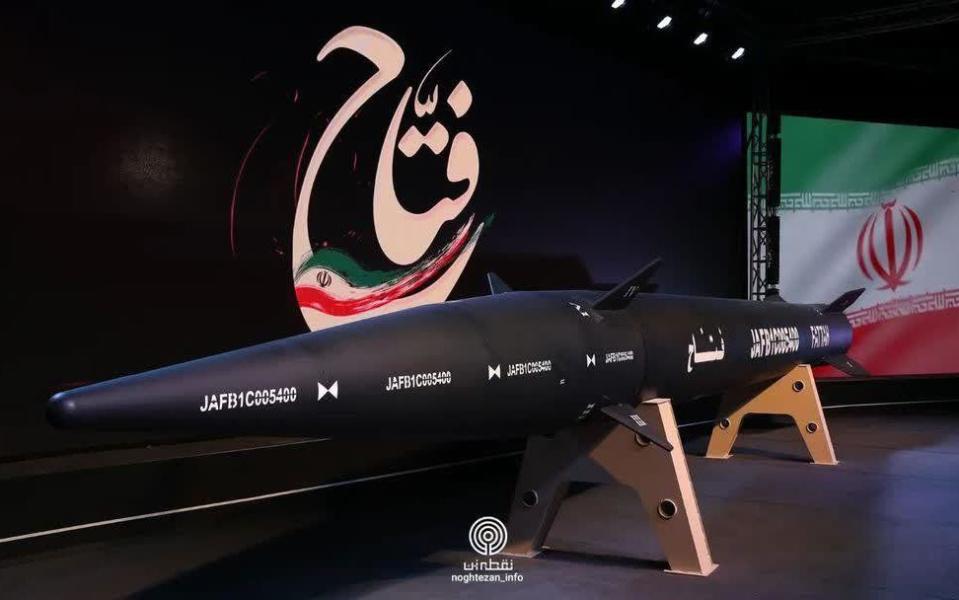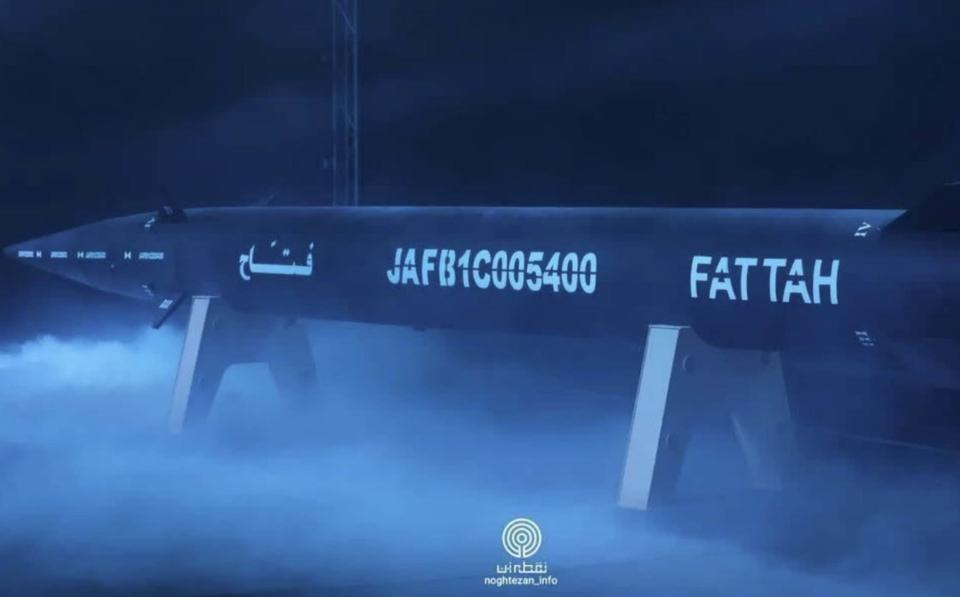Iran unveils first hypersonic missile in challenge to Israel and West

Iran has unveiled a hypersonic missile dubbed the “Fattah” which it claims is impossible to shoot down, in a potentially major challenge to Israel and Western leaders.
Iran’s Revolutionary Guard Corps revealed the new weapon, which can allegedly travel at 15 times the speed of sound, at a ceremony attended by Ebrahim Raisi, Iran’s president, and the regime’s top military chiefs.
“Today we feel that the deterrent power has been formed ... this power is an anchor of lasting security and peace for the regional countries,” said Mr Raisi.
Iran also published a video demonstration that purported to show the missile in action, though much of it appeared to rely on computer-generated imagery.
General Amir Ali Hajizadeh, the head of the Revolutionary Guard’s aerospace programme, claimed that “there exists no system that can rival or counter this missile”.
The assertion that the missile can both bypass and destroy air defence systems creates a significant security headache for Israel, Iran’s arch-foe in the region.
It will also cause deep concern among Western leaders, who are increasingly wary of Iran’s growing military capabilities - in particular its new security pact with Russia which is assisting the invasion of Ukraine.
An Iranian state television report on the ceremony claimed that the missile can destroy “the enemy’s advanced anti-missile systems and is a big generational leap in the field of missiles”.
“It can bypass the most advanced anti-ballistic missile systems of the United States and the Zionist regime, including Israel’s Iron Dome,” added the report.
The Fattah system has a range of 1,400km, can move in and out of space and, according to one Iranian general, is capable of hitting targets in Israel in as little as 400 seconds.
Israel and Iran are locked in an escalating shadow war in which they have attacked each others’ ships, along with other key infrastructure.
Israel is also suspected of launching a series of covert attacks on Tehran’s nuclear programme, which it regards as an existential threat.
Benjamin Netanyahu, the Israeli prime minister, has repeatedly suggested that he may take decisive military action against the nuclear programme in the near future, a move that could spiral into open regional warfare.

It comes after Iran announced it had completed work on the hypersonic missile, which according to some Israeli media reports may have been achieved with technological support from Russia.
Since Russia invaded Ukraine, Iran has been providing Vladimir Putin’s forces with hundreds if not thousands of drones and missiles.
In return, Moscow is to send powerful fighter jets to Tehran and could be assisting the regime in building up other areas of its military prowess.

 Yahoo Sports
Yahoo Sports 